Do 'gay genes' exist?

by
Same-sex marriage was recognized in the United States in 2015, and in May 2017, Taiwan became the first country in Asia to allow same-sex marriage. On the other hand, some people are against homosexuality for religious or other reasons. So, when viewed from the scientific side, is there a genetic reason for `` being gay '', and is `` gay genes '' something that everyone has, YouTube's science channel AsapSCIENCE explains doing.
Does Everybody Have A Gay Gene?-YouTube
In 1993, Science magazine announced that ``homosexuals have more homosexual relatives than heterosexuals'' and ``when both siblings are gay, a similar relationship was seen in the X chromosome of both.'' It was This study published by Dean H. Hamer and others became a hot topic as a 'gay gene', but Hamer and others cautioned that 'a homosexual gene was not found.'
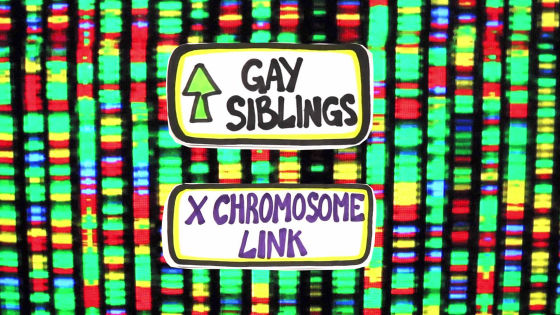
A 2015 study of 409 siblings, both gay, found similar relationships between chromosomes Xq28 and 8, suggesting that genes influence the development of male sexual orientation. was
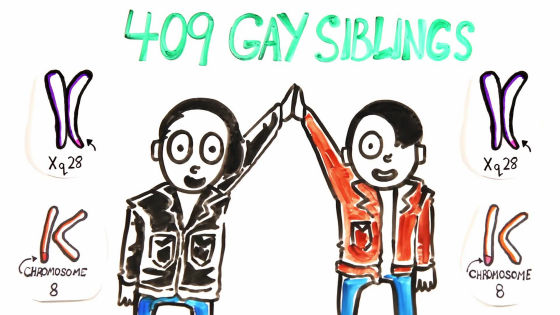
Furthermore, in 2014, an analysis of research results conducted over the past 50 years was conducted, and gay men were more likely to have gay brothers than straight men, and lesbian women were more likely to have lesbian sisters. A lot has been announced.
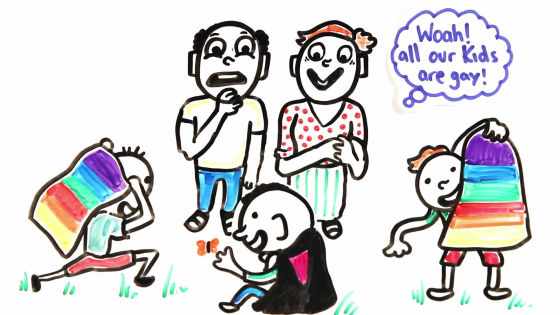
But if the 'gay gene' really exists, there is a paradox. There are homosexuals who have children, but 80% of homosexuals have fewer children than heterosexuals, so the genes are not inherited by children and homosexuals should be extinct? That's why.
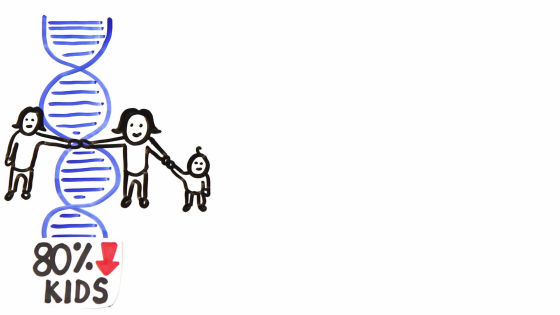
In this regard, an epigenetics study at the University of California, Los Angeles (UCLA) found that 'everyone has a gay gene, but when a methyl group is attached to the DNA at a specific location, the gene becomes ' Whether homosexuality is expressed depends on whether it is turned on .'

Epigenetics is a term that expresses 'how genes interact with the surrounding environment to create phenotypes', and the

The UCLA study looked at homosexual twins and heterosexual twins and found that specific methylation patterns were highly associated with sexual orientation. By analyzing genetic information called epigenetic markers collected from saliva, it is possible to predict whether the man is gay or straight with 70% accuracy. However, it has been pointed out that this study had a small number of subjects, and the content presented is controversial.

In other words, what can be said from the research so far is that a specific 'gay gene' has not yet been discovered. On the other hand, there is some evidence that human sexual orientation is strongly linked to genes, and many scientists believe that sexual orientation genes are regulated at the molecular level.

For example, mothers who have already given birth to boys are 33% more likely to be homosexual the next time they give birth to a son, compared to the baseline for the population as a whole. However, this tendency is not seen when the eldest son was a child of another mother.

The above facts lead researchers to believe that conceiving a boy may trigger biological mechanisms that influence a mother's next birth.

Furthermore, women exposed to high levels of testosterone in the womb are

In addition, in the ``

Studies have shown that gay men have lower levels of hostility and higher levels of cooperation, compassion, and emotional intelligence. These factors are also said to increase altruism within the group and raise survival levels.

It is also hypothesized that female cousins who share genes with gay men are more attracted to men, giving them an evolutionary advantage. There is also a study that women who have gay men as relatives have more children than average. This is also true for heterosexual men who have lesbian female relatives.

'Homosexuality gives the group an advantage. A society that condemns homosexuality condemns society itself,' said

Historically, science has not been friendly to the

Therefore, some people who self-identify as
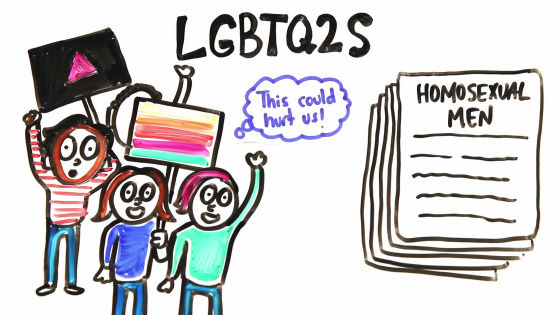
However, if genetic research and epigenetics research progress, it is possible that the law showing homophobia will decrease.

Related Posts:







